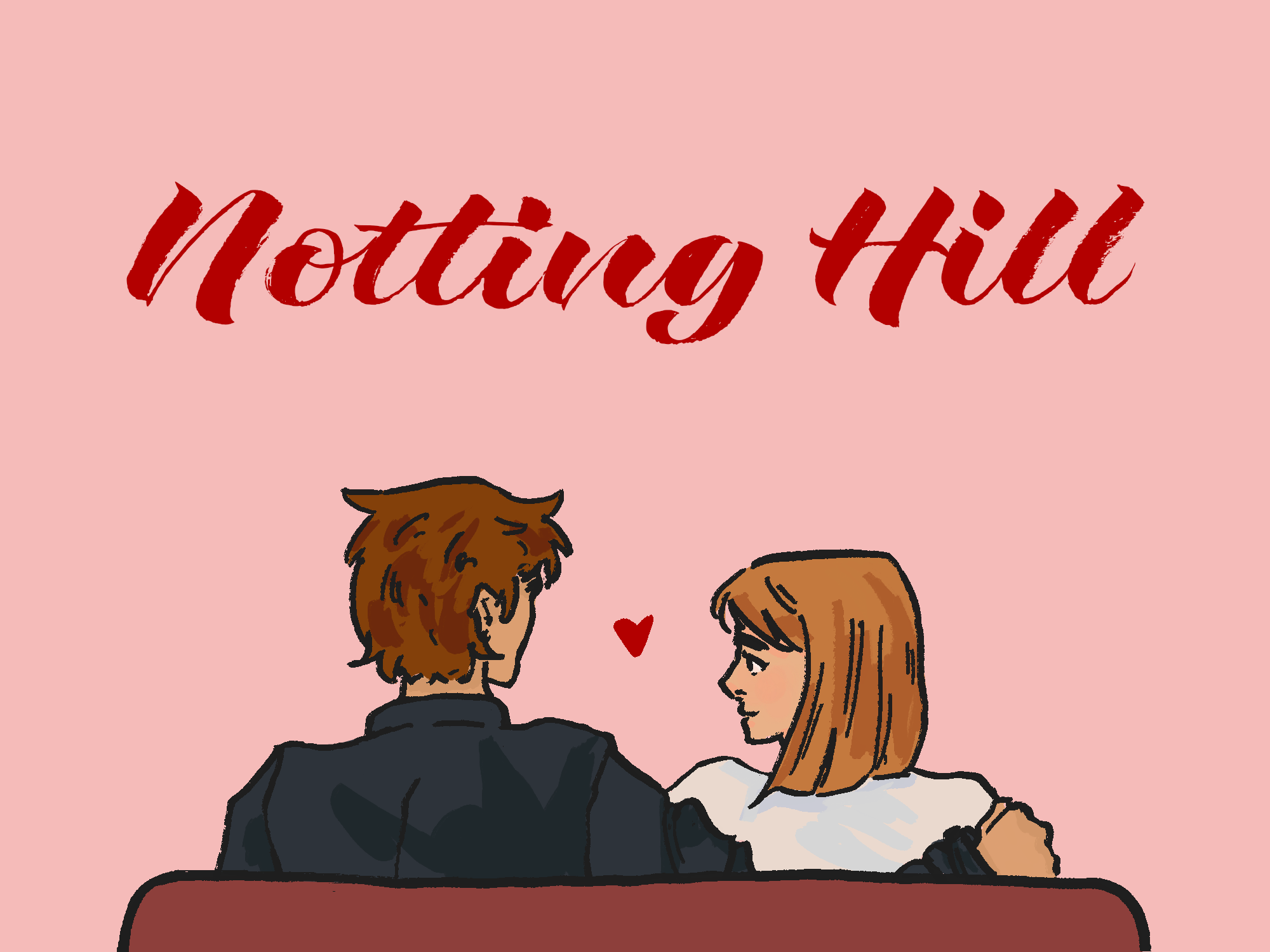Welcome to “The One,” a column dedicated to an often overlooked and scoffed-at genre of film — romantic comedies. Together, we will explore different dimensions of rom-coms, from the societal impact of specific movies to other facets of the rom-com genre as a whole.
“Notting Hill” is the epitome of a classic romantic comedy.
The 1999 film, starring Julia Roberts and Hugh Grant, tells the story of a British bookshop owner who falls for a famous American actress after she happens to stroll into his shop. Directed by Roger Michell with Richard Curtis’s screenplay, it’s a simple yet entertaining and satisfying movie that leaves its viewers content — it even made over $350 million in the box office and became the highest grossing British film of all time.
“Notting Hill” combines everything a classic turn-of-the-century rom-com has and needs: a star-studded cast, engaging banter that doesn’t feel forced, a “meet-cute” and a perfect grand gesture.
I still remember the first time I watched the film. I was browsing rom-coms on Netflix — my favorite guilty pleasure — and randomly clicked. Two hours later, I knew it would become one of my favorite films and ran to text my friends. I was met with the usual rebuffs associated with the genre: “Why do you like rom-coms? They’re dumb; they’re all the same.”
With “Notting Hill,” it does not feel trite. The entire genre of romantic comedies has been dismissed over and over, labeled as formulaic with cheap writing and predictable plots. In reality, every genre follows similar tropes, from superhero blockbusters to horror films, yet only rom-coms are consistently coming under fire for their cliches.
This story follows Anna Scott, a famous American movie star, and William, a modest British bookkeeper, on their path to love. Anna jumps from emotional extreme to extreme, whereas William takes a more logical route. He has never traveled outside of Notting Hill, despite owning a travel bookshop, while she is in a new country every month.
The movie has a philosophical feel that sets it apart from other romantic comedies. From William’s narration to the discussion of Greek gods that is woven in, writer Richard Curtis creates a perfect balance of humor and humanity with his script. He blends different authentic aspects of life together to create a cohesive plot that portrays the social world around us. Society tells us that a romantic relationship is the ultimate form of social unity. “Notting Hill” explores this by showing the differences in various relationships – unequal partnerships, difference in goals, worlds apart – and how these can be overcome.
I will not argue that there are absolutely zero problems with rom-coms and “Notting Hill.” There are plot holes. Characters do not act in realistic manners. Notting Hill is supposed to be one of Britain’s most diverse neighborhoods, yet all the main characters are Caucasian. However, every genre faces these same issues, and rom-coms are the only genre to be persistently attacked and looked down on by the masses.
Romantic comedies have been around since Ancient Greece, where they first appeared on a stage. History has shown that women are constantly undervalued — it is no surprise that rom-coms, which are primarily marketed toward women, are labeled “dumb” and “lacking substance.”
“Notting Hill” might seem like a stereotypical romantic comedy; the classic line “I’m just a girl, standing in front of a boy, asking him to love her” comes from a scene in the movie. However, it is so much more.
In an age where rom-coms are dying, I find myself turning to “Notting Hill” over and over again. It gets at what rom-coms are meant to do: celebrate love and make you smile. It is a light-hearted film that elicits laughs and comfort. It draws the audience in, bringing them into a new world for 124 minutes. To me, “Notting Hill” is like a warm hug — reliable and will always make you feel better.
Editor’s Note: This article is a review and includes subjective thoughts, opinions and critiques.
